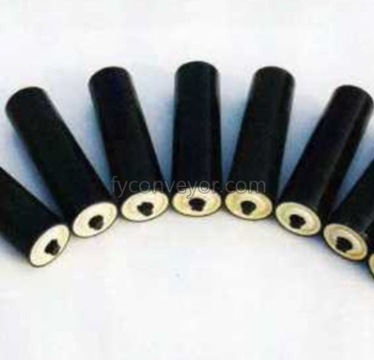What is a conveyor roller used for?
Conveyor systems are essential components of modern industries, revolutionizing the way goods are moved within production facilities, warehouses, and distribution centers. At the heart of these systems lies the conveyor roller, a seemingly simple yet indispensable element that plays a pivotal role in ensuring efficient material handling. In this article, we delve into the world of conveyor rollers, exploring their functions, benefits, and the crucial role they play in optimizing various industrial processes.
1. Understanding Conveyor Rollers
Conveyor rollers are cylindrical devices that facilitate the movement of items on a conveyor belt. They are strategically placed along the conveyor's length, allowing smooth transportation of goods from one point to another. These rollers support and guide the belt, minimizing friction and ensuring the items being conveyed move with ease.
2. The Versatility of Conveyor Rollers
Conveyor rollers find application in a wide array of industries, from manufacturing and logistics to mining and packaging. They are used to transport items of varying sizes, shapes, and weights, ranging from heavy industrial machinery to delicate consumer goods.
3. Key Components and Types
Conveyor rollers consist of several essential components, including the roller tube, axle, and bearings. The roller tube, typically made from materials like steel or plastic, provides structural integrity. Axles serve as the central shaft around which the roller rotates, and bearings ensure smooth rotation. Different types of conveyor rollers are available, such as gravity rollers, powered rollers, and tapered rollers, each catering to specific operational needs.
4. Benefits of Well-Designed Conveyor Rollers
Enhanced Efficiency: Conveyor rollers are designed to reduce friction, enabling items to move smoothly along the conveyor. This efficient movement translates to higher productivity and reduced operational downtime.
Minimal Maintenance: Quality conveyor rollers require less maintenance due to their durable construction and reliable bearings. This results in cost savings and uninterrupted operations.
Flexibility: Conveyor rollers can be customized to fit various conveyor systems, allowing for flexibility in design and implementation.
5. Applications in Different Industries
Manufacturing: Conveyor rollers play a crucial role in assembly lines, ensuring seamless movement of components between workstations.
Warehousing: In warehouses, conveyor rollers enable efficient sorting, packing, and distribution of goods.
Mining: Conveyor rollers are used in mining operations to transport heavy materials across long distances, increasing operational efficiency.
6. Conveyor Roller Brackets: Supporting the System
Conveyor roller brackets are accessories that hold the rollers in place, ensuring proper alignment and stability. These brackets come in various designs, such as adjustable brackets that allow for customization based on specific needs. Conveyor roller brackets are essential for maintaining the overall integrity of the conveyor system.
7. Ensuring Longevity and Performance
Proper maintenance is essential to extend the lifespan of conveyor rollers. Regular cleaning, lubrication of bearings, and prompt replacement of worn-out components are key practices to ensure optimal performance.
8. Where to Find Quality Conveyor Rollers
When considering conveyor roller for sale, it's crucial to source them from reputable manufacturers. One such reliable source is FYConveyor, a leading supplier of conveyor rollers and related components. Their extensive range of rollers, along with expertise in conveyor system solutions, ensures that your material handling needs are met with efficiency and reliability.
9. Innovations in Conveyor Roller Technology
The conveyor roller industry continues to evolve, with innovations such as smart rollers equipped with sensors for real-time monitoring of conveyor health. These advancements enhance predictive maintenance and contribute to overall operational excellence.
Conclusion
In conclusion, the conveyor roller is a vital component that underpins the functionality of conveyor systems across various industries. Its role in facilitating smooth material movement, enhancing efficiency, and supporting diverse applications makes it an indispensable element of modern manufacturing and logistics. By understanding the functions, benefits, and advancements in conveyor roller technology, industries can continue to optimize their processes for increased productivity and operational excellence.
Sources:



